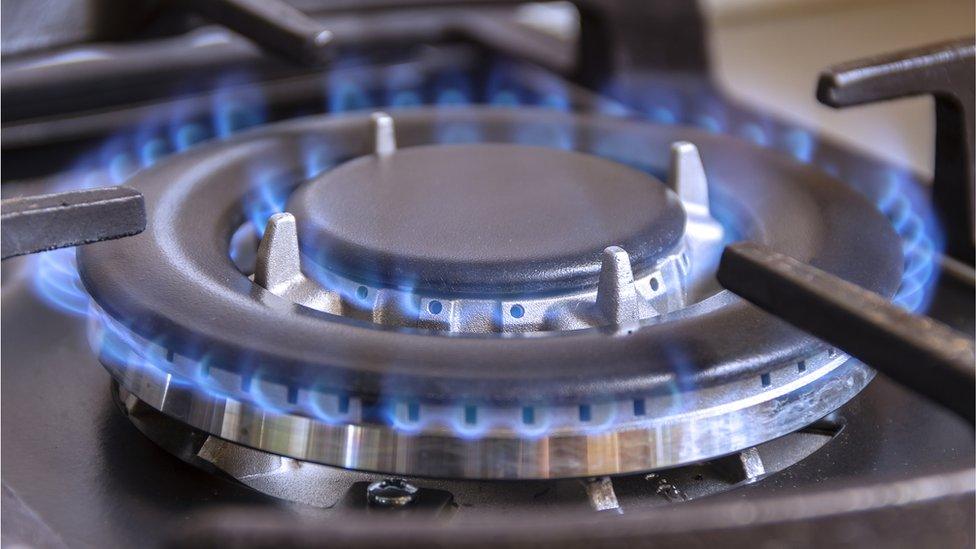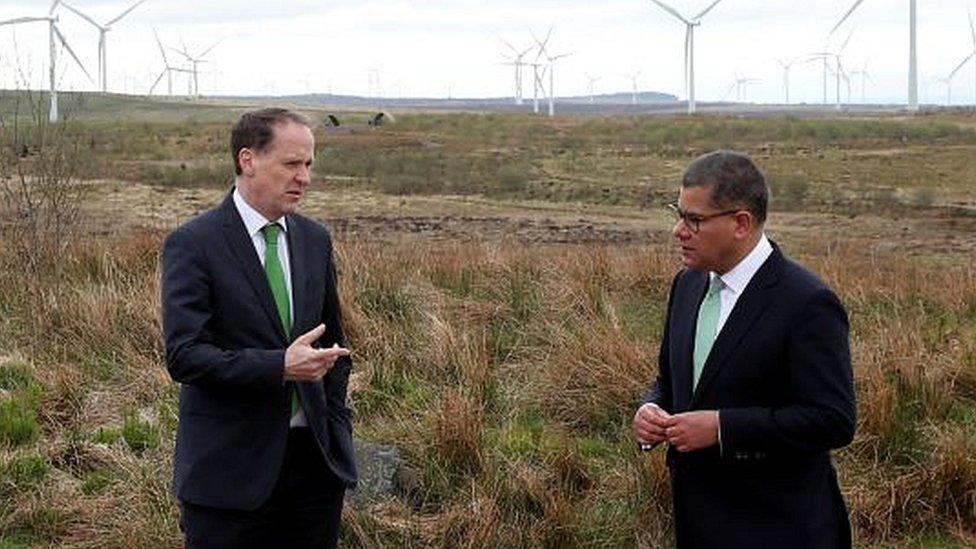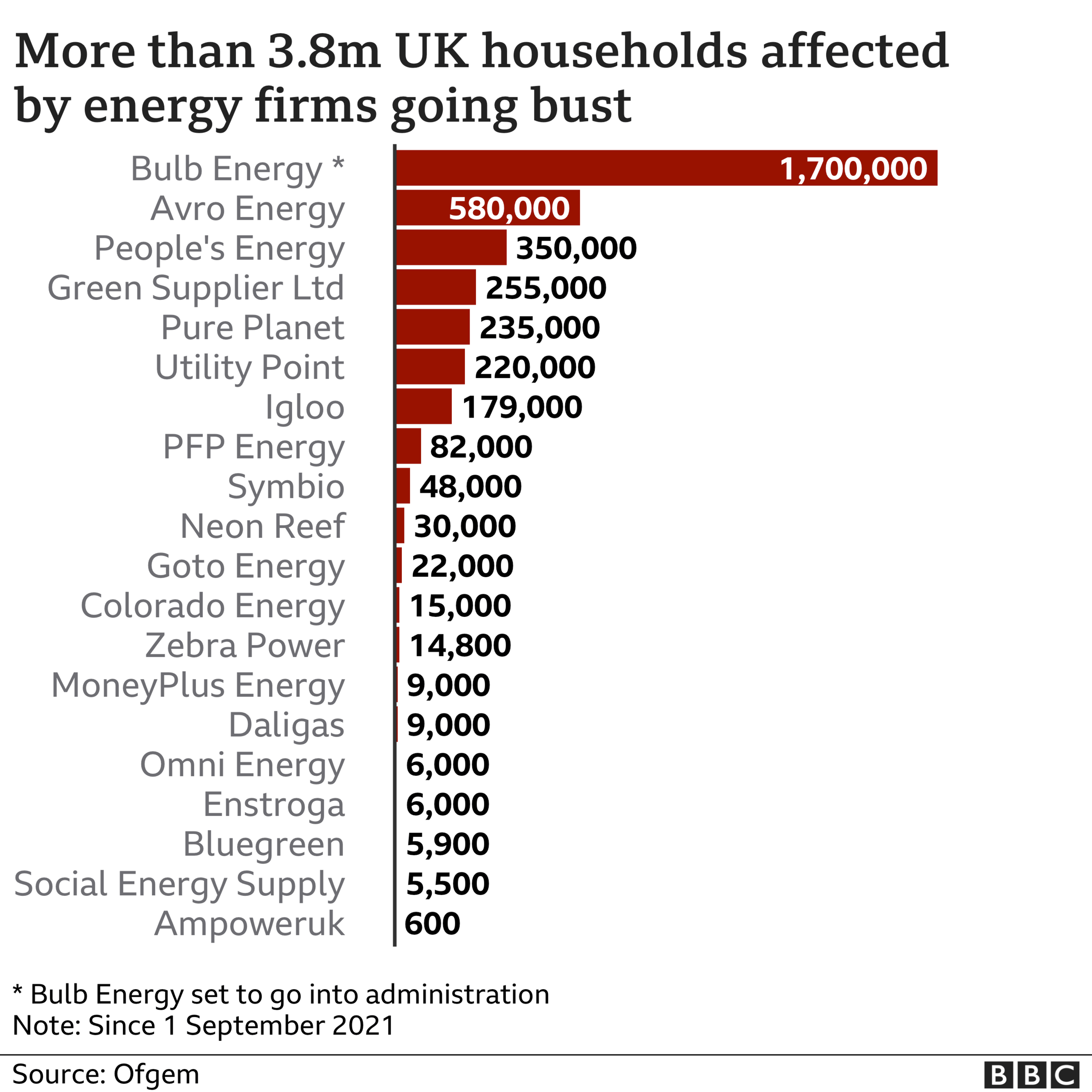Energy firm failures will mean higher bills, says Scottish Power
- Published
- comments

Customers will have to cover the cost of the recent spate of UK energy company failures through higher bills, the boss of Scottish Power has warned.
Keith Anderson told the BBC the energy market was broken and the government's price cap was largely to blame.
It comes as Bulb Energy, which has 1.7 million customers, is expected to enter administration this week.
It is the largest energy firm to have got into difficulties following a sharp rise in wholesale gas prices this year.
Bulb will be placed into "special administration", where it is run by the government through the regulator Ofgem.
When an energy firm fails, the regulator typically appoints another provider to take on its customers. That firm must then buy additional energy and repay any credits due to the customers of the failed provider - costs the rescuer company will recoup through household bills.
It would come at a time when gas and electricity prices are already at multi-year highs, Mr Anderson said.
"We've already seen the price cap go up by £150-180 [to accommodate the rising prices] and everybody is predicting that in April the price cap will go up by several hundred pounds," he told the BBC's Today programme.
"Then we're going to have the cost of all of these market failures, all these regulatory failures and company failures. They'll come through and all of the customers are going to have to pay for those as well," he said.

Scottish Power's Keith Anderson (L), seen here with COP26 president Alok Sharma (R), says energy bills will rise
"It is sad to say, but you'll be looking at a future of two or three price rises coming up because of the state of this market."
Since the beginning of September, at least 20 energy companies have gone bust in the UK after the price of wholesale gas soared globally.
Ofgem lifted the price cap on household gas and electricity bills by 12% to £1,277 in October. However, a number of firms collapsed because they were unable to pass on the wholesale price rise to the consumer.
'Unsustainable'
Mr Anderson said there had been an influx of companies into the UK energy market in recent years, many of which, he claimed, had not been run well and were not properly funded.
He said these companies were now struggling to cope with "unsustainable" market conditions - namely soaring wholesale energy prices and the energy price cap, which limits what providers can charge.
"What we need to see are wholesale changes in the policies and regulations, to make sure the companies in the market are sustainable, they are well funded, they are well run. This practice of companies putting customers' money at risk to fund their business it has to stop," he said.
The Department for Business, Energy and Industrial Strategy said the price cap would remain in place to protect consumers.
"[It] will remain in place to hold back a wave of instant bill increases this winter to ensure millions of customers pay a fair price for their energy," a spokeswoman said.
"Energy regulator Ofgem designed the price cap independently and in consultation with industry to ensure prices are fair for consumers and suppliers."

However, Justina Miltienyte, energy policy expert at Uswitch, said the cap was "not delivering for either customers or suppliers" right now.
"The intention of the price cap was to stop customers from overpaying, while making suppliers operate more efficiently," she told the BBC.
"However, suppliers can't actually recover their costs and while customers are currently, but accidentally, protected from a sharp increase to their bills, many still cannot afford the current price cap rates," she added.


What happens if your energy supplier goes bust?
Customers will still continue to receive gas or electricity even if the energy supplier goes bust. Ofgem will move your account to a new supplier, but it may take a few weeks. Your new supplier should then contact you to explain what is happening with your account
While you wait to hear from your new supplier: check your current balance and - if possible - download any bills; take a photo of your meter reading
If you pay by direct debit, there is no need to cancel it straight away, Citizens Advice says. Wait until your new account is set up before you cancel it
If you are in credit, your money is protected and you'll be paid back. If you were in debt to the old supplier, you'll still have to pay the money back to your new supplier instead

Bulb, which is the UK's seventh biggest energy company, announced it would file for administration on Monday after failing to raise the funding it needed from investors.
Under the Special Administrator Regime (SAR), the government will take over the running of the company while its future is sorted out. That could come in the shape of a takeover by another company, selling parts of its business or customers being transferred to another firm.
The firm, which was founded in 2015 to compete with the Big Six energy firms, caters to 5-6% of the UK energy market and has 1,000 staff.
- Published22 November 2021

- Published26 May 2022
